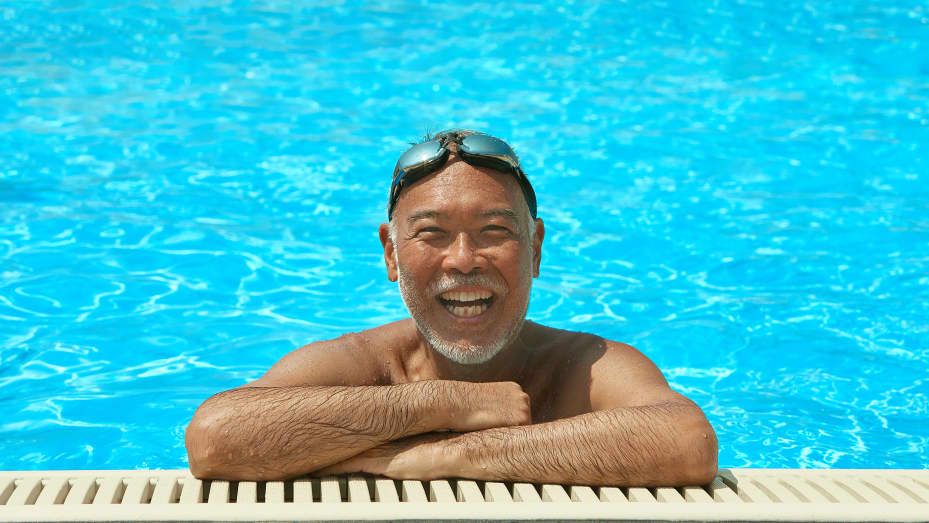
 You might have heard the words Life Span and Health Span and are interested in the difference. Living well and long: Can they share exactly the same characteristics? Could we do both? A longer period of time does not always translate to a much better life. New naturopathic medical studies have altered our notion of aging. Now we concentrate on our “health span” instead of how long we live, our longevity.
You might have heard the words Life Span and Health Span and are interested in the difference. Living well and long: Can they share exactly the same characteristics? Could we do both? A longer period of time does not always translate to a much better life. New naturopathic medical studies have altered our notion of aging. Now we concentrate on our “health span” instead of how long we live, our longevity.
Ideally our health span (that functional, healthy period of physical, emotional and mental wellness) must equal our life span. Nevertheless, statistics show our health has steadily decreased since World War II with over fifty percent of adults experiencing just one serious condition or illness while other people experience multiple problems.
Although technological and medical advancements have unmistakably extended our life expectancy, the achievement of extending it is still lagging behind.
Take the villain cancer as an illustration – the 2nd most prevalent cause of death worldwide. Although billions of dollars was invested on research cancer is just as lethal now as it had been 20, 30 as well as 50 years ago.
On average, an individual is one in two likely to get cancer and 1 in 3 likely to die of it. Three quarters of the public find themselves in this particular category already and regrettably these figures are likely to soar when the number of obese and overweight individuals climbs to unheard of levels.
Regardless of the accessibility of several medicines, hospitals as well as nursing homes, numerous individuals continue to feel greater pain than their parents did at the very same age.
To live with a life span which doesn’t match one’s overall health span is very costly and a less appealing choice. If together with those additional years of life, life to years will be added, experts concur the next chapter in medical advancement will need to be just as much about “lifestyle as medicine”
This is fantastic news as it means we do have a lot of control and can structure our lifestyle to ensure our overall health span does indeed complement our life span.
A significant part of being healthy is about removing the risk around getting these killers. To lower the chance of acquiring modern “lifestyle chronic diseases” like diabetes, cancer and heart disease together with many hundreds of others, a healthy lifestyle must start early in life and last throughout adulthood
Just how could we prolong our health span?
It is now becoming evident that adherence to good lifestyle choices like proper physical exercise, healthy eating (REAL food) along with other healthy lifestyle elements like stress management, quality sleep as well as good doses of sunshine is the formula required to obtain a comparable increase in “health span.”
A focus on lean body mass which is the quantity of lean muscle tissue we have is extremely important and many of us don’t comprehend that our muscles go beyond mobility.
Muscle mass improves longevity, enhances function and enhances quality of life as we grow older. Unfortunately, our contemporary increasingly sedentary world doesn’t offer sufficient “work” for our muscles to remain strong. We actually sit for most of the day and don’t get adequate muscle- building and maintaining activity.
The only way to assure we do get enough of the right activity is adding deliberate strengthening exercise in our lives and never stop doing them regardless of how old we’re, or we get.
Muscle health guards against hormonal and metabolic decline, insulin resistance, morbid obesity and higher risk of fractures. Neglected it will shorten health span.
Lean body mass is the MOST crucial biomarker since it enormously influences many other biomarkers including basil metabolic rate, general body strength, bone density and brain health.
Sarcopenia occurs when we ignore as well as fail to deal with these problems, leading to a significant decrease in muscle mass and strength.
Toned, strong muscles keep optimum blood glucose levels, boost heart strength and immune system health, keeps bones as well as joints in good health, and also enhances cognitive function while slowing down the process of aging.
Given the metabolic and biological significance of healthy muscle mass, permitting degradation of this system via inactivity particularly as we grow older can set the stage for a substantial health problem.
Health starts sliding downhill once muscle tissue loss occurs, triggering bad changes in body composition, loss of bodily energy and vitality, increased susceptibility to illness and accelerated aging.
Whenever strength is lost, the loss of independence also disappears and we become too frail to go around unassisted in order to look after ourselves. A condition a lot of us have observed with our parents and grandparents.
Partaking in strengthening exercise (not cardio type activity) defined as slow, immediate controlled loading of the muscles through their ranges of movement under with enough strength is the key to rebuilding lost muscle mass and strengthening or keeping it.
